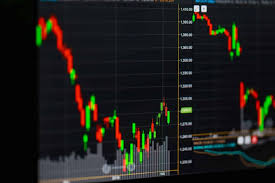Essential Forex Trading Tips for Beginners Mastering the Market

Forex Trading Tips for Beginners
Whether you are looking to make some extra income or aspire to become a full-time trader, understanding the fundamentals of Forex trading is crucial. It is a complex yet rewarding market that requires knowledge and practice. As a beginner, it is essential to equip yourself with the right tools, techniques, and insights to navigate the Forex world successfully. In this article, we will share essential Forex trading tips for beginners, aiming to help you build a strong foundation in trading while gradually increasing your skills. For more resources and information, you can visit forex trading tips for beginners Latam Web Trading.
1. Understand the Basics of Forex Trading
Forex trading involves the buying and selling of currencies. Unlike stock trading, Forex operates 24 hours a day, five days a week, making it accessible to traders worldwide. It’s crucial for beginners to familiarize themselves with the basic terminology, market structure, and functioning of the Forex market.
Key Concepts to Know
- Pips: The smallest price move in a currency pair.
- Currency Pairs: Currencies are traded in pairs, such as EUR/USD or GBP/JPY.
- Leverage: Allows traders to control large positions with a small amount of capital.
- Spread: The difference between the buying and selling price bid and ask price.
2. Create a Trading Plan
A well-thought-out trading plan is essential. This plan should outline your trading goals, risk tolerance, and the specific strategies you will use. Without a definitive plan, traders can easily fall into emotional trading, which can lead to significant losses.
Elements of a Trading Plan
- Trading Goals: Define your short-term and long-term trading objectives.
- Risk Management: Set clear rules for how much capital you are willing to risk on each trade.
- Entry and Exit Strategies: Establish criteria for entering and exiting trades.
- Evaluation: Regularly review your trades and strategies to learn from mistakes and successes.
3. Start with a Demo Account
Many brokers offer demo accounts that allow you to trade with virtual currency. This is an excellent way for beginners to practice trading strategies and understand the trading platform without financial risk.
Benefits of Demo Trading
- Gain experience without risking real money.
- Test different strategies to see what works best for you.
- Familiarize yourself with the trading platform and tools available.
4. Learn Technical Analysis
Technical analysis involves analyzing historical price data to forecast future price movements. As a beginner, it’s important to learn how to read charts, identify trends, and use indicators effectively.
Key Technical Analysis Tools
- Moving Averages: Helps smooth out price action and identify trends.
- Support and Resistance Levels: Price levels where the market tends to reverse.
- Relative Strength Index (RSI): A momentum oscillator that measures the speed and change of price movements.
- Fibonacci Retracement: Used to identify potential reversal levels based on the Fibonacci sequence.
5. Stay Informed
Market news and economic events can significantly impact currency prices. Being informed about global economic conditions, geopolitical events, and key economic releases can improve your trading. Utilize reliable news sources, economic calendars, and Forex forums to stay up to date.

6. Practice Risk Management
Effective risk management is one of the most critical aspects of successful trading. As a beginner, you should aim to protect your trading capital by implementing risk management techniques.
Risk Management Techniques
- Use Stop-Loss Orders: Automatically exit a trade at a predetermined loss level to limit potential losses.
- Limit Your Leverage: Avoid high leverage as it can amplify losses.
- Diversify Your Trades: Spread your risk across different currency pairs instead of concentrating your capital in one trade.
- Never Risk More Than You Can Afford to Lose: Only use a portion of your capital for trading to protect against devastating losses.
7. Keep a Trading Journal
Keeping a trading journal is invaluable for any trader. This journal can help track your trades, identify patterns in your trading behavior, and evaluate your performance over time.
What to Include in Your Journal
- Date and time of the trade.
- Currency pair traded.
- Entry and exit points.
- Reason for entering the trade.
- Outcome of the trade.
- Lessons learned from each trade.
8. Control Your Emotions
Trading can be an emotional rollercoaster. Fear and greed can cloud your judgment and lead to poor trading decisions. Beginners must learn to recognize these emotions and manage them effectively.
Tips for Controlling Emotions
- Avoid overtrading; stick to your trading plan.
- Take breaks when feeling overwhelmed.
- Accept that losses are part of trading; learn from them.
- Stay patient and disciplined, focusing on your plan rather than impulsive decisions.
9. Learn from Experienced Traders
Connecting with experienced traders can accelerate your learning curve. Participate in trading forums, attend workshops, or follow successful traders on social media to gain insights into their strategies.
Valuable Learning Sources
- Online courses on Forex trading.
- Forex trading books and guides.
- Webinars and virtual trading sessions.
- Mentorship from seasoned traders.
10. Keep a Long-Term Perspective
Finally, remember that successful trading is not about getting rich overnight. It requires commitment, continuous learning, and a long-term perspective. Be patient, and stay focused on your goals, knowing that success in Forex trading takes time and effort.
Conclusion
Entering the Forex market as a beginner can be daunting, but with the right mindset, education, and strategies, it is indeed possible to become a successful trader. Remember to stay disciplined, keep learning, and use these tips as a guide. As you gain experience and refine your skills, you will become more confident in your trading abilities. Good luck on your trading journey!

Leave a Reply